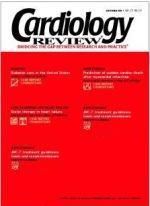More research needed regarding sodium intake
No firm recommendations on limits to sodium intake can be made until adequate research is conducted, according to Geza Simon, MD, PhD. The push to publish research in a reasonable amount of time and the ethical issues of exposing humans to high sodium intakes for prolonged periods have prevented meaningful investigation into the harmful cardiovascular effects of high sodium intake, he says.
Habitual salt consumption in civilized societies ranges from 70 to 210 mmol/day. Humans and experimental animals have been exposed to much higher concentrations of salt to investigate the cardiovascular effects of a high-sodium diet, says Dr. Simon. “Our experimental models are based on massive stimulus in a short time period to produce results that can be published,” he said. “Those findings may not be very relevant to the human condition.”
Two known physiologic alterations brought about by salt load are a combined increase in cardiac output and regional blood flow, which dilates arteries, and an increase in plasma and extracellular sodium concentration, which may affect vascular reactivity. Chronically increased blood flow to the brainstem may result in dilatation and microaneurysm formation of small arteries, and could contribute to stroke.
Investigation of the long-term hemodynamic effects of a high-sodium diet in humans is difficult because it would require moderate increases in dietary sodium and years of exposure. This approach is neither practical nor ethically justifiable, he said.
The alternative is to study the effects in experimental models. Six-month studies in the rat model suggest that high-sodium diets over the long term may cause large arteries to become prematurely stiff, which could lead to the development of systolic hypertension with aging. Although this phenomenon is caused by aging itself to some extent, a high-sodium diet may expedite the process, said Dr. Simon, professor of medicine, University of Minnesota, Minneapolis. Human studies have also found parallel increases in arterial stiffness and dietary sodium consumption.
The experimental evidence for the vascular effects of a high-sodium diet are reviewed by Dr. Simon in the American Journal of Hypertension (2003;16[12]:1074-1078).
